My First $1 Million: Biopharmaceutical Senior Manager, 45, Massachusetts
"If you have big goals, adversity comes with the territory. I'd rather work through those challenges than be a rudderless ship."
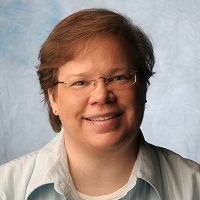
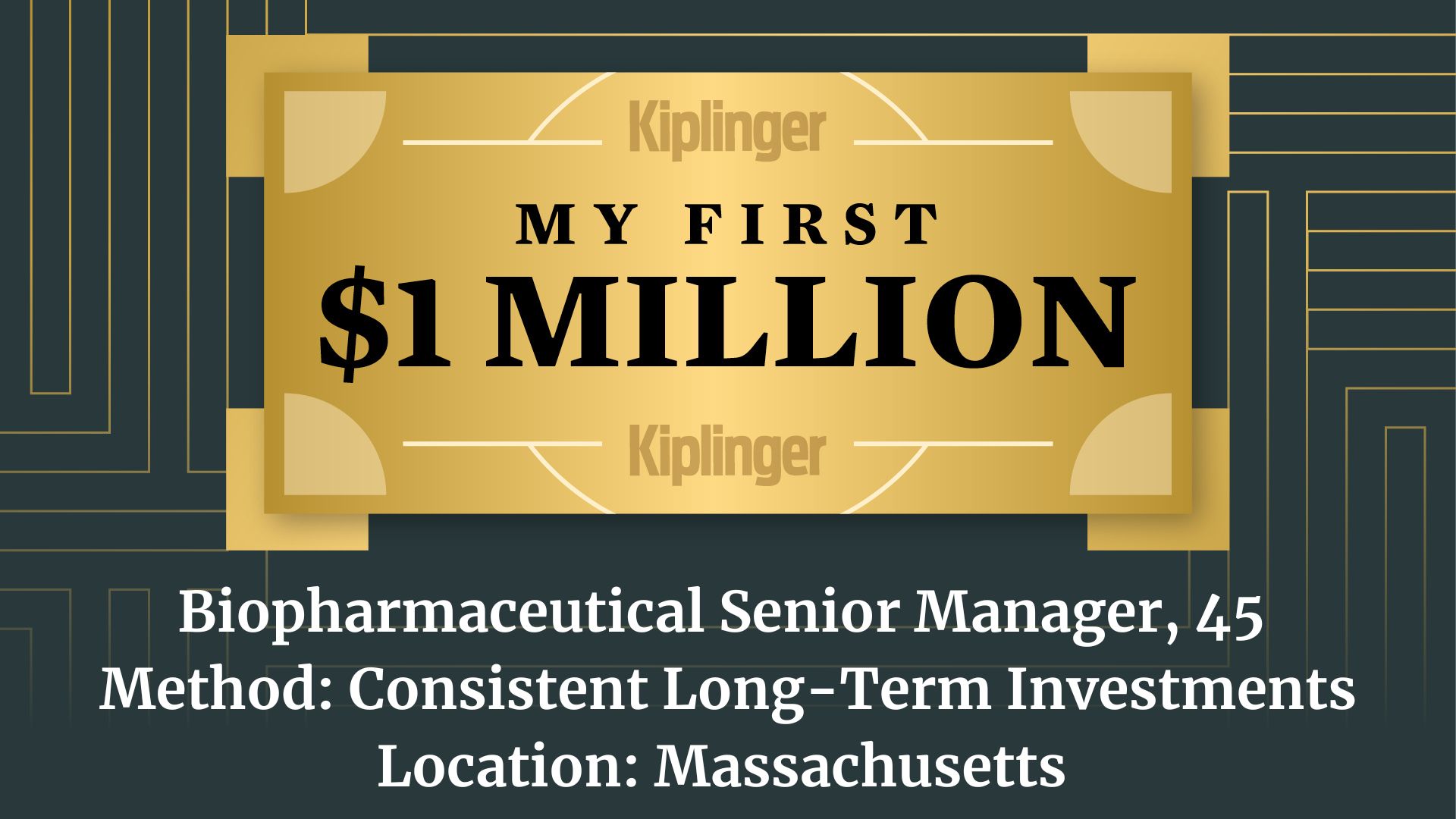
Profit and prosper with the best of Kiplinger's advice on investing, taxes, retirement, personal finance and much more. Delivered daily. Enter your email in the box and click Sign Me Up.
You are now subscribed
Your newsletter sign-up was successful
Want to add more newsletters?
Welcome to Kiplinger's My First $1 Million series, in which we hear from people who have made $1 million. They're sharing how they did it and what they're doing with it. This time, we hear from a 45-year-old senior manager in the biopharmaceutical industry who lives in Massachusetts but grew up in Vermont.
See our earlier profiles, including a writer in New England, a literacy interventionist in Colorado, a semiretired entrepreneur in Nashville and an events industry CEO in Northern New Jersey. (See all of the profiles here.)
Each profile features one person or couple, who will always be completely anonymous to readers, answering questions to help our readers learn from their experience.
From just $107.88 $24.99 for Kiplinger Personal Finance
Become a smarter, better informed investor. Subscribe from just $107.88 $24.99, plus get up to 4 Special Issues

Sign up for Kiplinger’s Free Newsletters
Profit and prosper with the best of expert advice on investing, taxes, retirement, personal finance and more - straight to your e-mail.
Profit and prosper with the best of expert advice - straight to your e-mail.
These features are intended to provide a window into how different people build their savings — they're not intended to provide financial advice.
THE BASICS
How did you make your first $1 million?
I started from $0 and steadily saved from W-2 earnings. My first $1 million came from consistent long-term investments in a variety of vehicles, primarily in publicly traded equities and index funds through 401(k), Roth IRA, traditional IRA and brokerage accounts.
I also invested in real estate with a few rental properties. I sold all of those rental properties from 2017 to 2019 and reallocated that capital to equities, which has compounded significantly since.
I've spent considerable time studying company financials to pick individual stocks and have had some success. However, I have found that over the last 10-plus years, the market-indexed portion of my overall portfolio has outperformed many of those individually selected stocks.

Due to that comparison, for the vast majority of my current holdings, I primarily index instead of trying to select individual stocks.
From a primary residence perspective, I've owned three homes and have always moved 100% of existing equity from a sale into the next home.
Through the combination of sweat equity, capital improvements, regularly paying down the mortgage ahead of schedule and increases in property value, I have realized about $1.4 million in primary-residence equity with a 35% loan-to-value.
What are you doing with the money?
Essentially, it's compounding as I continue to invest it. I've always tried to live below my means so that I could invest and grow a portfolio, even while scraping by through college and starting my career.
For regular monthly expenditures, I use a portion of my employment-earned income and save/invest the rest. I paid off college ahead of schedule, never succumbed to bad consumer debt and have stayed committed to investing with the goal of financial freedom.
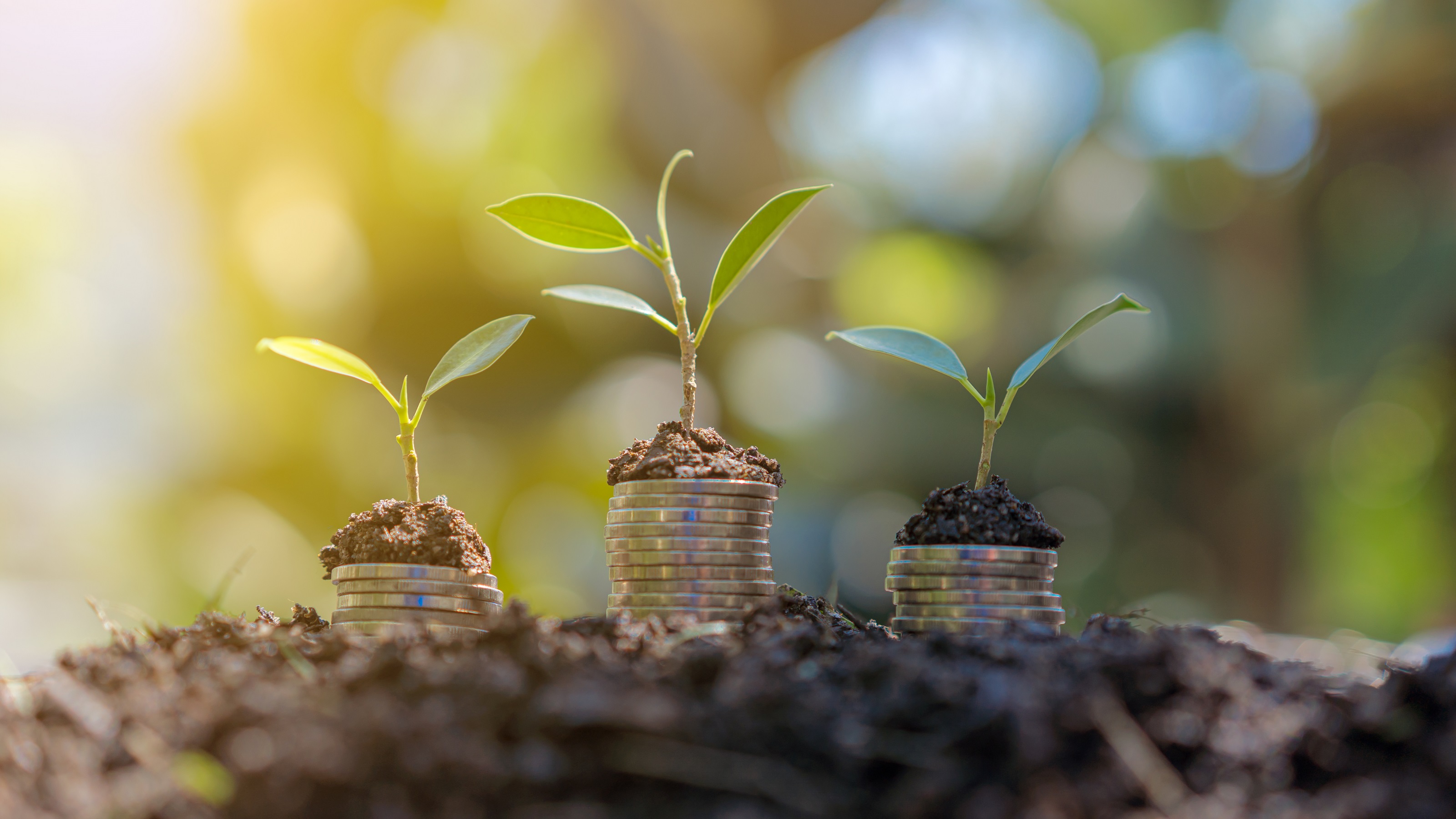
I continued to reinvest all dividends, and once capital was invested, never withdrew earnings for personal spending to instead focus on compounding growth. This helped me avoid taxes and fees and accelerate portfolio growth.
It's relevant to admit this required prudence with spending, but I had essentials and kept reserves for fun activities, and the net result of these early tradeoffs means I now have a higher overall net worth and far less income concerns.
Eventually, I will reposition my portfolio to growth and income to live off dividends while preserving capital.
THE FUN STUFF
Did you do anything to celebrate?
Not really, but I did allow it to sink in and feel a sense of accomplishment. I certainly felt more comfortable with the choices that got me there.
What is the best part of making $1 million?
It is not what it used to be 20 to 30 years ago, but it is still a substantial goal and can lead to financial freedom.
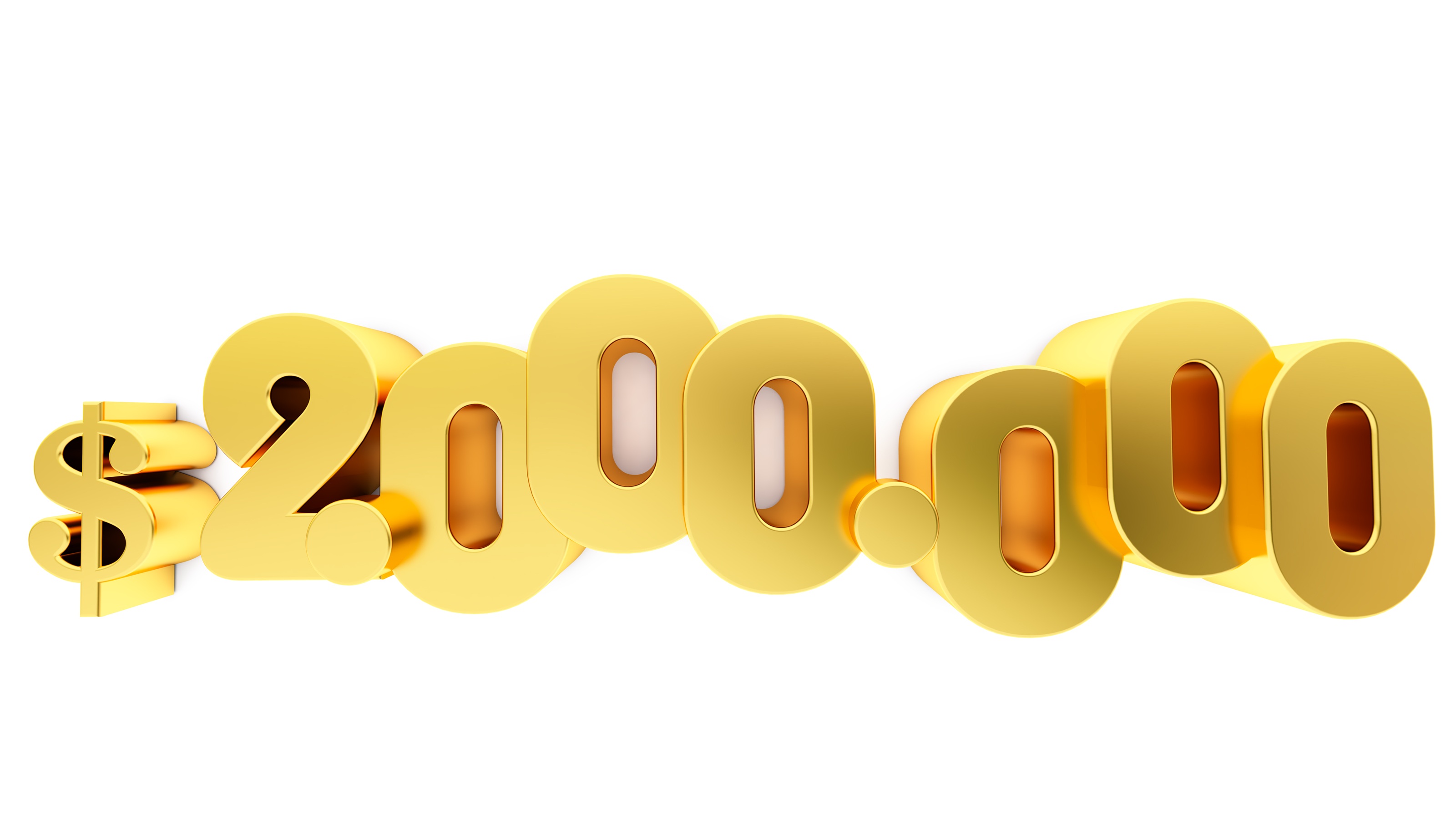
Plus, $1 million leads to $2 million and so on.
Currently, there are about 6 million individuals in the U.S. with at least $1 million in liquid investable assets. $1 million would rank an individual by net worth roughly in the top 1.5% to 2% of the U.S. population.
That doesn't matter, but it underscores how uncommon the achievement is.
Did your life change?
Day to day, not a lot changed because I've never been a spendthrift. I tend to buy fewer things of higher quality vs more things of lower quality.
For the most part, our family feels good about our resources to meet our needs.
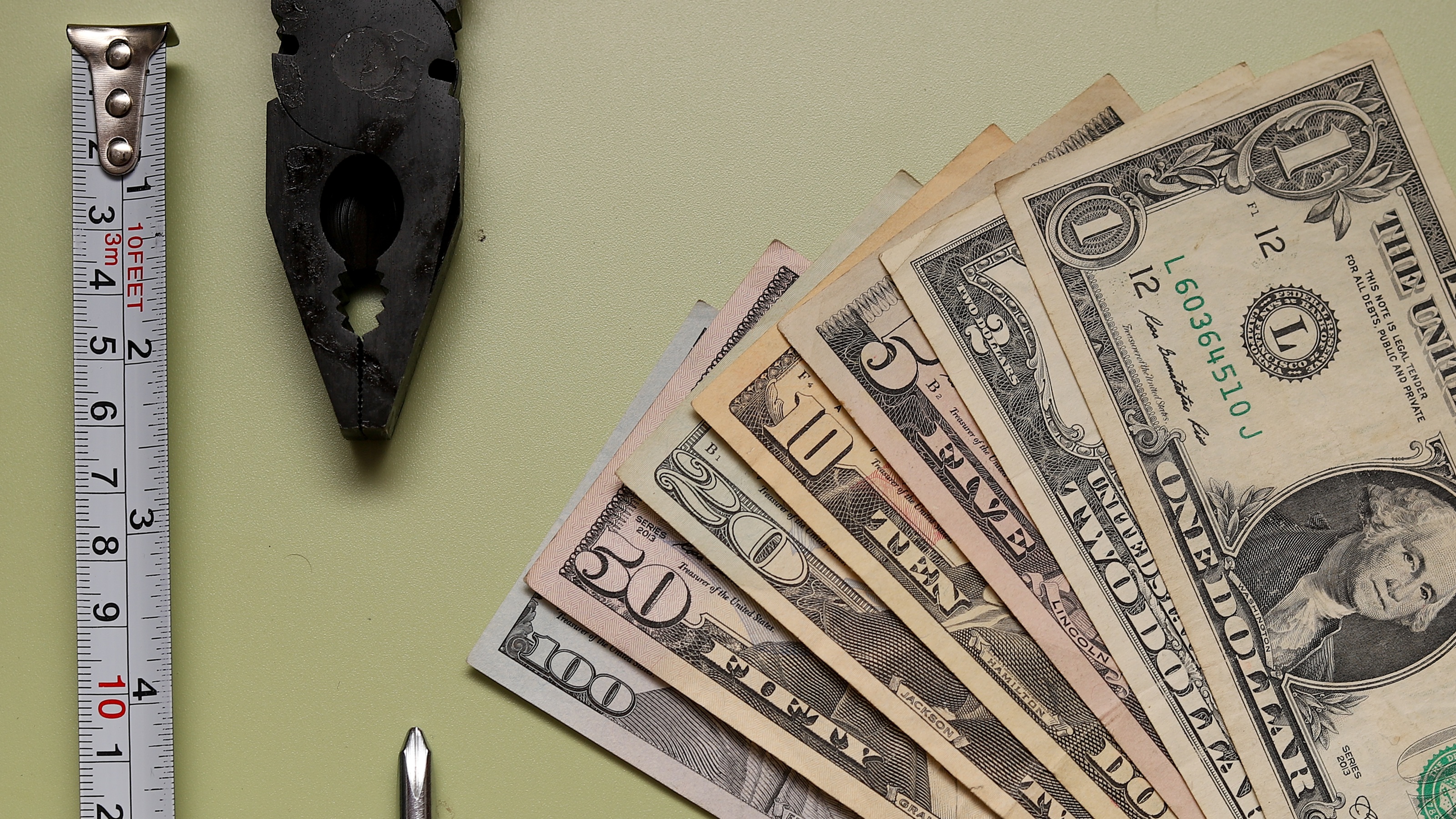
Areas that it does change our life: providing for a more secure future and contributing to that peace of mind has benefits. I think of capital as a tool that provides options and opportunities.
Any plans to retire early?
I enjoy work and have 59 to 60 years old as a target to step away from regular corporate employment.
Our economy and industries are changing incredibly fast right now, so I may calibrate this horizon.
Even if I didn't contribute another dollar to my portfolio, with about 15 years left of additional compounding, I should have far exceeded my retirement income needs.
This is why getting to $1 million as early in life as possible is very important.
There are so many vocational options to consider that I will likely stay engaged at some level, part time, after "retirement."
LOOKING BACK
Why did you want to make $1 million?
When I was growing up, I realized that wealth was possible for anyone in the U.S., and the alternative of barely getting by month to month was not something I wanted for my life or my family.

So it became a goal that I focused on with great intent. It is only a portion of my life; it isn't a fixed destination that creates complete fulfillment or happiness, but it is a valuable resource that provides many more opportunities in life.
Anything you would do differently?
Not really. If you have big goals, adversity comes with the territory. I'd rather work through those challenges than the alternative of being a rudderless ship.
There are no do-overs, just learning from mistakes and avoiding the same one over and over again.
I'd also recommend learning from others to reduce the learning curve.
Did you work with a financial adviser?
My first encounter with a financial adviser was with Morgan Stanley during my undergraduate internship. I used my first $10,000 in savings to invest that summer and learned about mutual funds and indexes. I didn't choose finance as a career, but I learned how to model a basic portfolio.
Over time, I've spoken with several financial advisers and firms. They offer great services, and I would recommend using an adviser to others who do not want to focus on their investments. Just be mindful of fees and seek to understand their recommended products.
For personal advisers, I have an attorney who handles our estate plan, a full-service insurance provider and a great tax professional. This gives our family a holistic approach to all matters.

With the tools that are available to individuals on most investment platforms (Fidelity, Schwab, etc.), it is not that difficult to manage a portfolio, which I still do.
As life changes and I approach retirement, I will likely seek advice from a fiduciary on a fee-only basis to ensure I'm maximizing my financial options.
Did anyone help you early on?
Yes. I have always sought out people who were already successful in areas that I was interested in and politely asked if I could learn from them.
Not everyone is generous with their time, but in almost all cases, I found most people are willing to share wisdom and knowledge. Valuable insights can come from all types of people.
I've learned useful ideas from all walks of life, including farmers, entrepreneurs and corporate professionals.
LOOKING AHEAD
Plans for your next $1 million?
I've already made it. Each one feels great, but it also provides an opportunity to continue building upon and refocusing goals. There is a greater sense of empowerment and ability to help others, which is nice.
Any advice for others trying to make their first $1 million?
The first million is the hardest. It takes dedication and persistence. Rare shortcuts may generate media headlines, but in reality, remaining diligent with a sound strategy over the long term will likely improve the likelihood of achieving this milestone.
Focus on building a portfolio of $100,000, then $250,000 and stay committed. It is slow at first, but continued investment and compounded returns will snowball to $1 million and more.

Time is your friend; start early and continue to increase investment allocations over time as you earn more.
Additionally, there are many ways to do this, including being an entrepreneur. I tried that route, too. Start-up failure rates are real. It's exhilarating and worth exploring if that is your passion, but incredibly difficult.
Although I may try a founder role again, for me, directly investing in public companies worked. It depends on your opportunities and which direction you want to take.
Lastly, no matter how much you earn or how high your net worth becomes, try not to compare yourself to others. This can be a thief of joy, because the higher up you go, there are always folks at that next level with more.
Regularly reflect on your own goals and priorities and remain true to yourself.
Do you have an estate plan?
Yes, definitely. Estate planning is critical. We have a full plan, including a revocable trust.
What do you wish you'd known …
When you first started saving? That it would likely take longer than one hopes to reach certain milestones. You will get bumps and bruises along the way, but it is very achievable. Before you know it, you've surpassed original goals and reached even higher levels.
When you first started investing? There is no shortage of advice, but spend the time to sift through the noise and find simple, time-tested, solid advice to replicate.
Don't try to time the market. Even the pros get it wrong often. Avoid making big financial decisions during emotional times. Learn about market cycles.

I started investing right around the dot-com bubble. In my lifetime, we've also experienced the housing market collapse, the Great Recession and the pandemic.
Staying the course, averaging into the market and taking advantage of the upside opportunities were helpful.
Be curious, keep learning from reputable sources, develop a plan and continually revisit your goals to pivot if needed or gain confidence when you need to stay the course.
When you first started working with a financial professional? At the end of the day, they are sales professionals. Ask the right questions and find someone who will help you reach your goals. Keep looking if you haven't found the right professional, but keep putting money away and keep your finances in order in the meantime.
If you have made $1 million or more and would like to be anonymously featured in a future My First $1 Million profile, please fill out and submit this Google Form or send an email to MyFirstMillion@futurenet.com to receive the questions. We welcome all stories that add up to $1 million or more in your accounts, although we will use discretion in which stories we choose to publish, to ensure we share a diversity of experiences. We also might want to verify that you really do have $1 million. Your answers may be edited for clarity.
RELATED CONTENT
- You're 62 Years Old With $1 Million Saved: Can You Retire?
- Want to Earn $1 Million More Over Your Lifetime? Do This
- Do You Have at Least $1 Million in Tax-Deferred Investments?
- Are You Rich? U.S. Net Worth Percentiles Can Provide Answers
- Compare Your Net Worth by Age
Profit and prosper with the best of Kiplinger's advice on investing, taxes, retirement, personal finance and much more. Delivered daily. Enter your email in the box and click Sign Me Up.
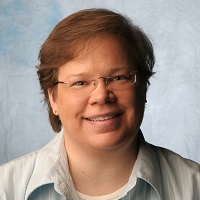
As Contributed Content Editor for the Adviser Intel channel on Kiplinger.com, Joyce edits articles from hundreds of financial experts about retirement planning strategies, including estate planning, taxes, personal finance, investing, charitable giving and more. She has more than 30 years of editing experience in business and features news, including 15 years in the Money section at USA Today.
-
 Thinking of Switching Phone Carriers? Do These 8 Things First
Thinking of Switching Phone Carriers? Do These 8 Things FirstSwitching carriers is easier than ever, but overlooking the fine print could cost you. Here’s what to check before you make the move.
-
 Samsung Galaxy S26 Ultra: What to Know Before You Upgrade
Samsung Galaxy S26 Ultra: What to Know Before You UpgradeThe Galaxy S26 Ultra brings new features and strong launch deals, but whether it’s worth upgrading depends on what you already own.
-
 Nasdaq Soars Ahead of Nvidia Earnings: Stock Market Today
Nasdaq Soars Ahead of Nvidia Earnings: Stock Market TodayWednesday's risk-on session was sparked by strong gains in tech stocks and several crypto-related names.
-
 What Is an Assumable Mortgage and Could It Save You Thousands?
What Is an Assumable Mortgage and Could It Save You Thousands?With mortgage rates still elevated, taking over a seller’s existing home loan could lower monthly payments — if the numbers work.
-
 Have You Fallen Into the High-Earning Trap? This Is How to Escape
Have You Fallen Into the High-Earning Trap? This Is How to EscapeHigh income is a gift, but it can pull you into higher spending, undisciplined investing and overreliance on future earnings. These actionable steps will help you escape the trap.
-
 I'm a Financial Adviser: These 3 Questions Can Help You Navigate a Noisy Year With Financial Clarity
I'm a Financial Adviser: These 3 Questions Can Help You Navigate a Noisy Year With Financial ClarityThe key is to resist focusing only on the markets. Instead, when making financial decisions, think about your values and what matters the most to you.
-
 Where Olympians Store Their Medals is a Great Lesson For Your Valuables and Cash
Where Olympians Store Their Medals is a Great Lesson For Your Valuables and CashWhat you can learn about protecting your cash and values from where Olympians store their medals.
-
 An Executive's 'Idiotic' Idea: Skip Safety Class and Commit a Federal Crime
An Executive's 'Idiotic' Idea: Skip Safety Class and Commit a Federal CrimeSeveral medical professionals reached out to say that one of their bosses suggested committing a crime to fulfill OSHA requirements. What's an employee to do?
-
 How You Can Use the Financial Resource Built Into Your Home to Help With Your Long-Term Goals
How You Can Use the Financial Resource Built Into Your Home to Help With Your Long-Term GoalsHomeowners are increasingly using their home equity, through products like HELOCs and home equity loans, as a financial resource for managing debt, funding renovations and more.
-
 How to Find Free Money for Graduate School as Federal Loans Tighten in 2026
How to Find Free Money for Graduate School as Federal Loans Tighten in 2026Starting July 1, federal borrowing will be capped for new graduate students, making scholarships and other forms of "free money" vital. Here's what to know.
-
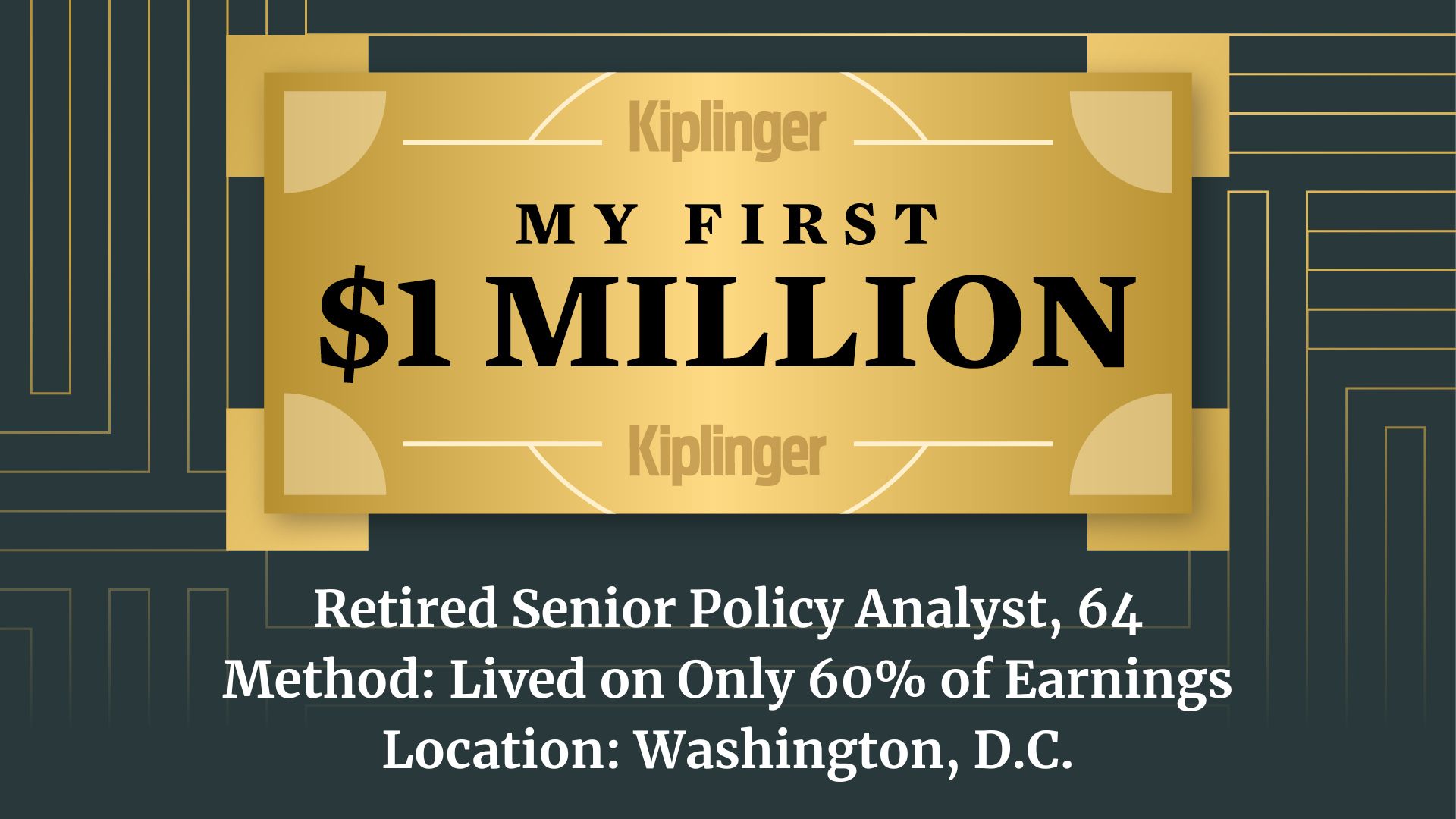 My First $1 Million: Retired Senior Policy Analyst, 64, Washington, D.C.
My First $1 Million: Retired Senior Policy Analyst, 64, Washington, D.C.Ever wonder how someone who's made a million dollars or more did it? Kiplinger's My First $1 Million series uncovers the answers.